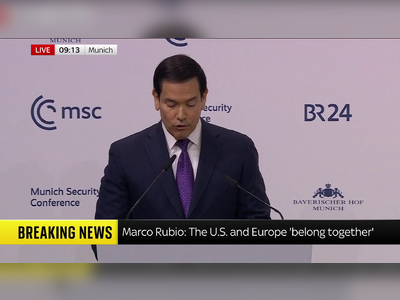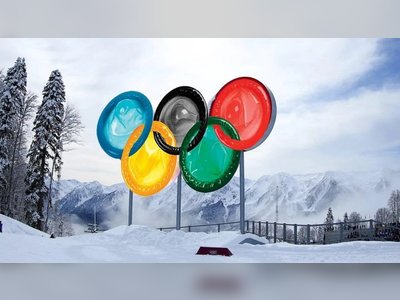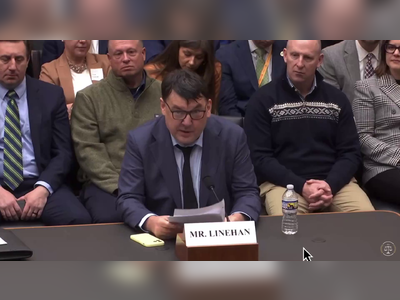Croatian Tourism Faces Significant Workforce Shortage Amid Stricter Immigration Laws
New regulations lead to a decline in foreign work permits, threatening the summer tourism season.
Croatian tourism, which has relied heavily on a workforce from Serbia, Bosnia and Herzegovina, and other regional countries, is facing severe challenges this summer, potentially its most significant setback since the onset of the COVID-19 pandemic.
This situation is attributed to the implementation of a new Foreigners Act, which has introduced stricter criteria for issuing work permits.
Official data from the Croatian Ministry of the Interior indicates that in the first five months of 2025, a total of 83,252 residence and work permits were issued to foreign workers, representing a decrease of 10,514 permits compared to the previous year—a drop of 11.2%.
The tourism and hospitality sectors, which are vital to Croatia's summer economy, have been most affected, with only 27,841 work permits issued.
This marks an 11.4% reduction from the same period last year, leading to an unfilled workforce shortage of nearly 3,600 positions as the tourist season begins.
Seasonal jobs traditionally filled by workers from Serbia, including positions such as waiters, chefs, housekeepers, receptionists, and auxiliary staff, are now in jeopardy.
The reduction in issued permits means that bars, restaurants, and hotels in popular tourist areas such as Pag, Novalja, Split, and Dubrovnik lack sufficient staff to accommodate incoming tourists, which directly impacts revenue and the reputation of Croatia as a travel destination.
Estimates suggest that an average seasonal worker in the tourism sector contributes between €15,000 to €20,000 to the overall income during the season.
Considering the current shortage of approximately 3,600 workers, the financial loss could exceed €50 million in just the first half of the season.
This figure represents a conservative estimate, with potential losses likely to increase if the worker deficit persists through July and August, the peak months for tourist spending.
The challenges related to the new immigration regulations stem from more bureaucratic processes and extended wait times for work permits.
Rather than simplifying procedures in response to a pressing demand for workers, employers are facing complexities in meeting paperwork requirements as the tourist season approaches, leading to an acute shortage of vital hospitality staff.
If the trend of declining work permits continues, Croatia risks not only losing tens of millions of euros but also jeopardizing its status as one of Europe’s most sought-after summer destinations.
Tourists may become frustrated with long wait times for service and inadequate accommodations, presenting further challenges to the Croatian tourism industry this season.
This situation is attributed to the implementation of a new Foreigners Act, which has introduced stricter criteria for issuing work permits.
Official data from the Croatian Ministry of the Interior indicates that in the first five months of 2025, a total of 83,252 residence and work permits were issued to foreign workers, representing a decrease of 10,514 permits compared to the previous year—a drop of 11.2%.
The tourism and hospitality sectors, which are vital to Croatia's summer economy, have been most affected, with only 27,841 work permits issued.
This marks an 11.4% reduction from the same period last year, leading to an unfilled workforce shortage of nearly 3,600 positions as the tourist season begins.
Seasonal jobs traditionally filled by workers from Serbia, including positions such as waiters, chefs, housekeepers, receptionists, and auxiliary staff, are now in jeopardy.
The reduction in issued permits means that bars, restaurants, and hotels in popular tourist areas such as Pag, Novalja, Split, and Dubrovnik lack sufficient staff to accommodate incoming tourists, which directly impacts revenue and the reputation of Croatia as a travel destination.
Estimates suggest that an average seasonal worker in the tourism sector contributes between €15,000 to €20,000 to the overall income during the season.
Considering the current shortage of approximately 3,600 workers, the financial loss could exceed €50 million in just the first half of the season.
This figure represents a conservative estimate, with potential losses likely to increase if the worker deficit persists through July and August, the peak months for tourist spending.
The challenges related to the new immigration regulations stem from more bureaucratic processes and extended wait times for work permits.
Rather than simplifying procedures in response to a pressing demand for workers, employers are facing complexities in meeting paperwork requirements as the tourist season approaches, leading to an acute shortage of vital hospitality staff.
If the trend of declining work permits continues, Croatia risks not only losing tens of millions of euros but also jeopardizing its status as one of Europe’s most sought-after summer destinations.
Tourists may become frustrated with long wait times for service and inadequate accommodations, presenting further challenges to the Croatian tourism industry this season.
AI Disclaimer: An advanced artificial intelligence (AI) system generated the content of this page on its own. This innovative technology conducts extensive research from a variety of reliable sources, performs rigorous fact-checking and verification, cleans up and balances biased or manipulated content, and presents a minimal factual summary that is just enough yet essential for you to function as an informed and educated citizen. Please keep in mind, however, that this system is an evolving technology, and as a result, the article may contain accidental inaccuracies or errors. We urge you to help us improve our site by reporting any inaccuracies you find using the "Contact Us" link at the bottom of this page. Your helpful feedback helps us improve our system and deliver more precise content. When you find an article of interest here, please look for the full and extensive coverage of this topic in traditional news sources, as they are written by professional journalists that we try to support, not replace. We appreciate your understanding and assistance.











